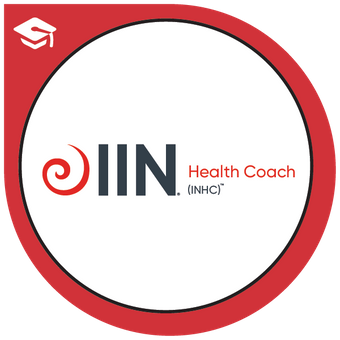What can Life Priority supplements do for your cardiovascular health?
Free consultation – HEART HEALTH & SUPPLEMENTATION
Can supplements for heart health play a role in supporting overall health? It’s important to understand your personal needs. Get product recommendations from our specialists.
latest Health ARTICLES
Helpful Resources
View our professionally curated heart health related content that has been reviewed and kept relevant by our scientists and medical professionals.
What Can Omega 3 Do for Your Heart Health?
Magnesium Reduces All-Cause Mortality, Including Stroke, Heart Failure, And Diabetes
Learn More
Supplements That are Good for Heart Health.
Dr. Angela M. Sterling, D.C. is a chiropractor in Blue Springs, Missouri.
Learn More
How Can Life Priority Supplements Help With Cardiovascular Health?
Supplements can play a supportive role in cardiovascular health by providing key nutrients and compounds that help manage risk factors and promote overall heart well-being.
While supplements can be beneficial, they should be used as part of a comprehensive approach to cardiovascular health. Maintaining a balanced diet, regular physical activity, not smoking, and managing stress are all crucial for heart health. Consult with a healthcare professional before starting any supplement regimen, especially if you have existing cardiovascular conditions or are taking medications, to ensure that they are safe and appropriate for your specific needs.
Our Recommendation
-
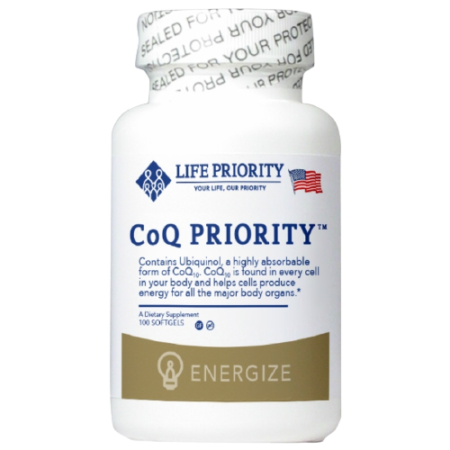
Anti-Aging
CoQ PRIORITY™
Rated 0 out of 5
$49.95 — or subscribe and save 15%A favorite of heart health professionals
Uses Kaneka QH Ubiquinol*, one of the most bioavailable and active forms of COQ10. A favorite of heart health professionals.
Supplements for Cardiovascular Health
Omega-3 Fatty Acids: Fish oil supplements, rich in omega-3 fatty acids like EPA and DHA, have been linked to reduced risk of heart disease. They can lower triglycerides, reduce blood pressure, and decrease inflammation, all of which contribute to better cardiovascular health.
Coenzyme Q10 (CoQ10): CoQ10 supplements support energy production in cells, including heart muscle cells. It can improve heart health by enhancing the heart’s pumping ability and reducing the risk of heart failure.
- Magnesium: Magnesium supports healthy blood pressure levels and can help relax blood vessels. A deficiency in magnesium has been associated with an increased risk of heart disease.
Vitamin D: Vitamin D supplements may help reduce the risk of heart disease by supporting overall cardiovascular health. Adequate vitamin D levels are linked to improved blood vessel function and reduced inflammation.
Antioxidants: Supplements rich in antioxidants like vitamin C, vitamin E, and selenium can help reduce oxidative stress and inflammation in the blood vessels, which are contributing factors to cardiovascular diseases.
L-Arginine: This amino acid can help increase nitric oxide production in the body, which relaxes blood vessels and improves blood flow, potentially reducing blood pressure and the risk of heart disease.
Heart Health Supplements
Heart health supplements are specialized dietary products designed to support and maintain the well-being of your cardiovascular system. Packed with essential nutrients, antioxidants, and beneficial compounds, these supplements can help manage risk factors associated with heart disease.
-
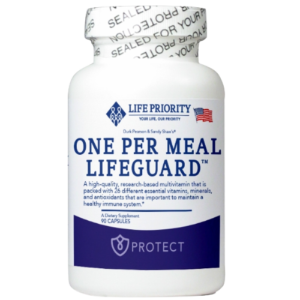
ONE PER MEAL LIFEGUARD™
Rated 5.00 out of 5 based on 17 customer ratings$29.95 — or subscribe and save 15% Add to cart -
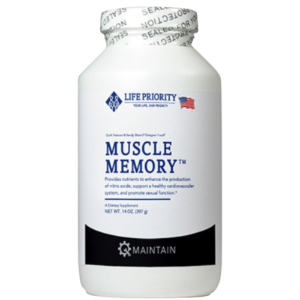
MUSCLE MEMORY™
Rated 4.93 out of 5 based on 14 customer ratings$59.95 — or subscribe and save 15% Add to cart -
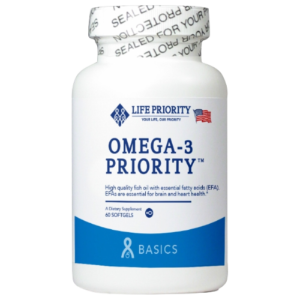
OMEGA-3 PRIORITY™
Rated 5.00 out of 5 based on 5 customer ratings$25.95 — or subscribe and save 15% Add to cart -
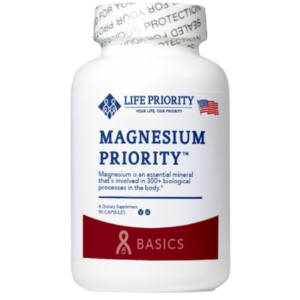
MAGNESIUM PRIORITY™
Rated 5.00 out of 5 based on 2 customer ratings$24.95 — or subscribe and save 15% Add to cart
Be Proactive With Your Heart Health, It Could Save Your Life.
We are all at some point guilty of not making our own health a priority, unfortunately that mentality sometimes comes at the greatest price imaginable.

Women’s Heart Health
As the leading cause of death of American women, heart disease kills more than one-third of the women each year — five times more than those who die of breast cancer. Heart health for women everywhere is more important than ever!

Men – Life’s Priorities
We all know that as men, there are times when we can be stubborn and even dismissive when it comes to being proactive regarding our health. It’s either, oh it will go away on its own, that will never happen to me, or I’ll schedule that appointment tomorrow.
What Our Customers are Saying About Our Heart Health Supplements
Don’t take our word for it, here are reviews from verified customers that love our products!

Cheryl SOmega-3 Priority™ Supplement Review Read More
I am a believer in Life Priority Omega 3 Priority! As a registered nurse and a medical educator, I fully support and endorse the Life Priority Omega 3 Priority! Omega 3 is so valuable for both heart and brain health. Please consider the Life Priority Omega3, I did and I am glad I did!

Louise Omega-3 Priority™ Supplement Review Read More
I am 91 years old and have been a Life Priority customer for over 18 years. I love the high quality products and the wonderful customers service I have received. I credit Life Priority with help me stay healthy!

Michelle Pryor Omega-3 Priority™ Supplement Review Read More
I am the co-owner of Life Priority™. I demand the best supplements for me, my family and customers. Omega3 Priority™ was sourced to insure Life Priority™ would market only the best Omega3. I use and share the Omega3 Priority™ with all my family and friends!

Marti ArnoldOmega-3 Priority™ Supplement Review Read More
My doctor suggest I take Omega3. I have been using Life Priority Joint Decision for years so I took in the label for Omega 3 Priority. My doctor knows the Life Priority owners and was impressed with the quality. I trust my health to my friends at Life Priority.
Previous
Next
Heart Health Related Articles
View resources related to cardiovascular health.
This popular form is an organic chelate combination of magnesium plus the amino acid glycine. It is known to be gentle on the stomach with good bioavailability, and has been shown to promote decreased anxiety, improved quality of sleep and have therapeutic effects for other mental health disorders.
Citrate is the most popular form of magnesium. It is bound to citric acid and is considered to be the most bioavailable and most common type of supplement used for magnesium deficiencies. This type is good for helping muscle cramps or muscle pain.
External wounds treated with a magnesium chloride oil solution have shown to have positive effects on leucocytic activity and phagocytosis, making it excellent for wound cleansing. It also plays a vital role by increasing hydrochloric acid in the stomach because this type completely ionized allowing it to increase gastric acids for proper digestion.
This particular type has a lower absorption rate, but is most commonly used to treat migraines. It is also a good source for reducing stomach acid, and can be found in several types of antacids which relieve heartburn, indigestion, or a sour stomach.
Lactate is more commonly used for individuals who require larger doses of magnesium for nutritional therapy recommended by their health care provider. However, it is also used as a food additive to reduce the acidity in different food mixtures.
This particular type is one of the most absorbable forms of magnesium. It is also known as “NeuroMag” because this form crosses the blood-brain barrier and deposits magnesium in the brain tissues suggesting that it could be used for brain health improving memory and brain function.
Malate is found to be easier to digest and easier to absorb than some of the other types which helps to regulate bowel movements. It is also known for its sour taste that enhances the flavor of foods.brain health improving memory and brain function.
This particular type is one of the most absorbable forms of magnesium. It is also known as “NeuroMag” because this form crosses the blood-brain barrier and deposits magnesium in the brain tissues suggesting that it could be used for brain health improving memory and brain function.
Orotate contains “orotic acid” which is said to increase workout endurance and athletic performance; however, there is not enough research to valid that claim. It is also more expensive than other forms of magnesium which usually makes it a lesser option than the other types of magnesium above.
Remember, magnesium is an important natural mineral in your body, but it is not recommended to take any supplement without consulting with your doctor. So, if you’re curious whether you’re deficient or not getting the recommended amounts of magnesium needed, give your doctor a call. They will help you determine whether you need magnesium supplements, and which magnesium type is the best form for you.
Probiotic Products
Making healthy food choices is a great start! But we need a healthy digestive system to benefit from all the nutritious components of our food. Dozens of factors including genetics, stressful lifestyles, poor diet, processed foods and the environment all influence digestion. Supplementing a healthy diet and lifestyle with digestive enzymes is therefore the next step in good health.
-
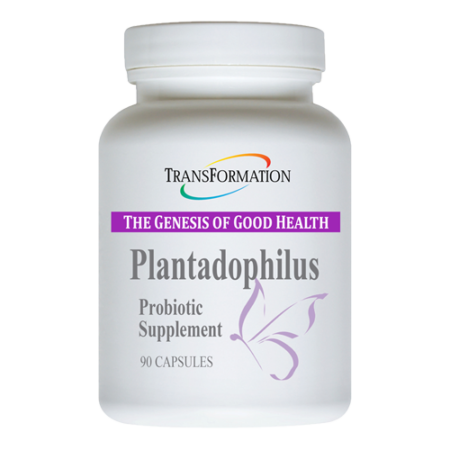
Enzymes
TE Plantadophilus (90 Capsules)
Rated 0 out of 5
$32.95 — or subscribe and save 15%For occasional constipation, occasional diarrhea, or excess gas
TE Plantadophilus Transformation’s original probiotic with L. Plantarum.* The beneficial bacteria known as probiotics play a vital role in detoxifying the body, helping to balance the pH and maintain a healthy intestinal environment.
-
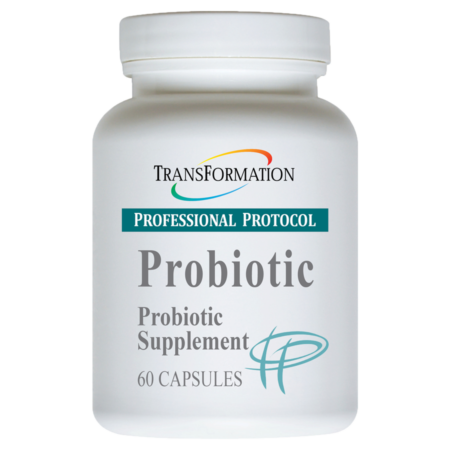
Enzymes
TE Probiotic (60 Capsules)
Rated 0 out of 5
$36.95 — or subscribe and save 15%Supports digestion for a healthy intestinal balance.
Designed to help promote gastrointestinal system health, assist with regularity, & support a healthy immune system.*
-
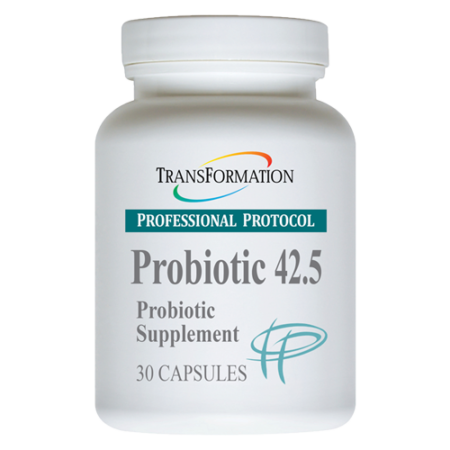
Enzymes
TE Probiotic 42.5 (30 Capsules)
Rated 0 out of 5
$56.95 — or subscribe and save 15%Maximum strength formula for healthy intestinal balance
TE Probiotic 4.25 Maximum strength formula for healthy intestinal balance
* The demand has never been greater for a maximum strength probiotic formula. Beneficial bacteria often become imbalanced by poor diet choices and environmental lifestyle stressors.
Ubiquinone CoQ10 Family of Products
For traditionalists who are looking for a more affordable alternative to those products found in the ubiquinol family, our ubiquinone promotes healthy cellular-level energy production and is a foundational element to whole-body wellness.
-
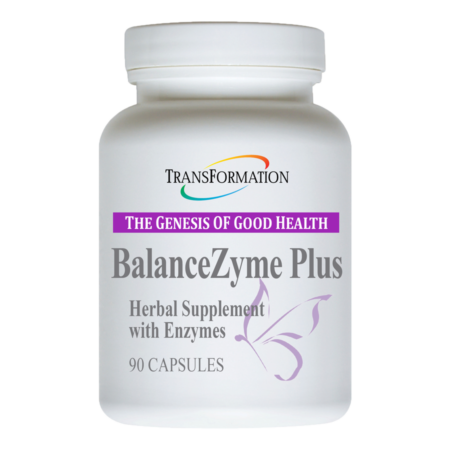
Enzymes
TE Balance Zyme Plus (90)
Rated 0 out of 5
$44.95 — or subscribe and save 15%Supports healthy digestion and weight management
Balance Zyme Plus helps support healthy digestion and weight management*. Individuals who are interested in an effective weight management program may need additional assistance with fat digestion and appetite control during meals.
Related Products
-

Anti-Aging
AGELESS PRIORITY™
Rated 5.00 out of 5
$84.95 — or subscribe and save 15%Slows advanced glycation end products (AGEs) that are associated with a majority of aging processes.*
A new and improved Designer Food® Formula from Durk Pearson & Sandy Shaw®
-

Anti-Aging
GARCINIA OOLONG-TEA PRIORITY™
Rated 0 out of 5
$64.95 — or subscribe and save 15%Garcinia Oolong-Tea™ provides four high energy minerals commonly deficient in modern-day diets combined with Garcinia cambogia and polyphenol rich Oolong tea in a sugar free dry beverage mix that can be enjoyed hot or cold.
Garcinia cambogia supplies naturally occurring hydroxycitric acid (HCA) commonly used to enhance metabolism, curb appetite, and manage weight.
-

Kuribl
KÜRIBL ACTIVE ROLL ON
Rated 0 out of 5
$39.99Roll on easy application topical relief with natural CBD camphor 2% and menthol 8%. Formulated for fast absorption and quick, temporary relief from minor muscle and joint pain inflammation. Our all-natural formula provides both minor pain relief and moisturizes skin.
-

Kuribl
KÜRIBL ACTIVE DRY SPRAY
Rated 0 out of 5
$39.99 -
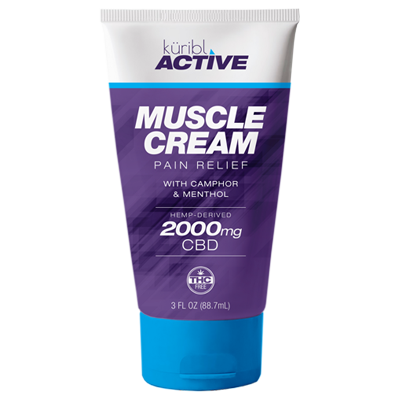
Kuribl
KÜRIBL ACTIVE MUSCLE CREAM
Rated 0 out of 5
$39.99
Add to cart -

Enzymes
Healthy Gut Program
Rated 0 out of 5
$130.95 — or subscribe and save 15%Enzyme support for a healthy digestive system.
Transformation’s Healthy Gut Program includes a one-month supply at normal usage of Professional Protocol™ Digest (90 caps), Protease (60 caps), and Probiotic (30 caps) with an instructional booklet.*
-
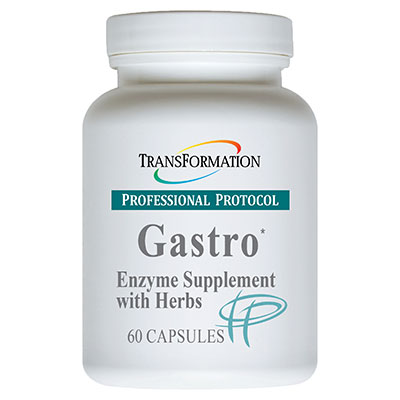
Enzymes
TE Gastro
Rated 0 out of 5
$38.95 — or subscribe and save 15%A natural, nutritional solution for occasional GI discomfort*
Transformation’s Professional Protocol™ Gastro is an enzyme and herbal product formulated to assist occasional gastrointestinal discomfort and promote digestive function.*
-
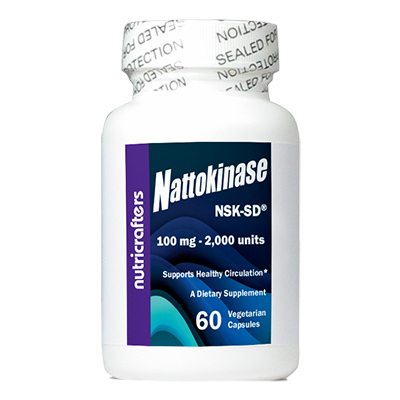
Brain
Nattokinase
Rated 0 out of 5
$34.95 — or subscribe and save 15%Supports normal, healthy blood flow and circulation
Nattokinase may contribute to the regular healthy function of the heart and cardiovascular system by enhancing fibrinolytic activity.
Can supplements support healthy and optimal cardiovascular health?
Supplements can play a role in supporting healthy cardiovascular health, but it’s important to note that they should not be a substitute for a balanced diet and a healthy lifestyle. Maintaining a healthy cardiovascular system primarily involves lifestyle factors, such as eating a balanced diet, regular exercise, not smoking, managing stress, and maintaining a healthy weight. However, some supplements have been studied for their potential benefits in promoting cardiovascular health.
What are the benefits of taking supplements for heart health?
Supplements can offer several potential benefits for heart health when used appropriately and in consultation with a healthcare provider. It’s important to note that supplements should complement a heart-healthy lifestyle and should not be a substitute for healthy eating and other cardiovascular wellness practices. Here are some potential benefits of taking supplements for heart health:
Lowering Cholesterol Levels: Some supplements, such as plant sterols and stanols, as well as soluble fiber supplements like psyllium, can help lower LDL (bad) cholesterol levels, which is a risk factor for heart disease.
Reducing Blood Pressure: Certain supplements like magnesium, potassium, and Coenzyme Q10 (CoQ10) may help regulate blood pressure, potentially reducing the risk of hypertension and related cardiovascular issues.
Anti-Inflammatory Effects: Omega-3 fatty acids, found in fish oil supplements, have anti-inflammatory properties, which may benefit heart health by reducing inflammation in blood vessels.
Antioxidant Protection: Antioxidant supplements, including vitamin C, vitamin E, and CoQ10, can help protect the heart and blood vessels from oxidative stress, which is associated with heart disease.
Improving Blood Flow: Arginine, an amino acid, may help improve blood flow by promoting the production of nitric oxide, a compound that relaxes blood vessels and increases circulation.
Reducing Triglycerides: Omega-3 fatty acids, particularly EPA and DHA, have been shown to lower triglyceride levels, which is beneficial for heart health.
Preventing Blood Clots: Some natural supplements, like garlic and fish oil, may have blood-thinning properties that reduce the risk of blood clots, which can lead to heart attacks and strokes.
Managing Inflammation: Turmeric and its active compound, curcumin, have anti-inflammatory properties that might help manage inflammation associated with cardiovascular diseases.
It’s important to emphasize that not all supplements are suitable for everyone, and the benefits can vary depending on individual factors. Additionally, supplements should be used under the guidance of a healthcare provider. They are not a standalone solution and should be part of a comprehensive approach to heart health, which includes a balanced diet, regular exercise, stress management, and other lifestyle modifications.
Who should take supplements for heart health?
Supplements for heart health are not necessary for everyone, and their use should be determined on an individual basis, preferably in consultation with a healthcare provider. Whether or not you should take supplements for heart health depends on various factors, including your overall health, dietary habits, and risk factors for heart disease. Here are some considerations for individuals who might benefit from heart health supplements:
Individuals with Specific Health Conditions: People with certain health conditions, such as high cholesterol, high blood pressure, or heart disease, may benefit from supplements as part of their treatment plan. In such cases, healthcare providers may recommend specific supplements to help manage these conditions.
People with Dietary Deficiencies: Individuals with a known deficiency in essential nutrients, such as omega-3 fatty acids, magnesium, or vitamin D, may benefit from supplementation to correct these deficiencies. However, it’s essential to have your nutrient levels tested before starting supplementation.
Those at Risk for Heart Disease: If you have risk factors for heart disease, such as a family history of heart problems, a sedentary lifestyle, smoking, or obesity, your healthcare provider may recommend certain supplements as part of a broader strategy to reduce your risk.
Individuals with Limited Dietary Choices: Some individuals who have dietary restrictions or limited food choices (e.g., vegetarians or vegans) may benefit from supplements to ensure they get essential nutrients that are typically found in animal products, like vitamin B12 and omega-3 fatty acids.
Elderly Individuals: Older adults may require supplements because nutrient absorption and dietary intake may decline with age. For example, vitamin B12 and vitamin D deficiencies are more common in older populations.
Women of Childbearing Age: Women of childbearing age may be advised to take folic acid supplements to reduce the risk of neural tube defects in babies if they become pregnant.
Those with Specific Medications: Some medications can deplete certain nutrients or interact with them, necessitating supplementation. For example, statin medications used to lower cholesterol can reduce coenzyme Q10 levels, so CoQ10 supplementation may be recommended in some cases.
It’s crucial to consult with a healthcare provider before starting any supplement regimen for heart health. Your healthcare provider can assess your specific health needs, recommend appropriate supplements, and ensure that they do not interact with any medications you are taking. They can also guide you on the right dosage and duration of supplementation. In many cases, dietary changes and other lifestyle modifications are the first line of defense in promoting heart health, and supplements should be seen as a complement to these efforts, not a substitute.
When should you take supplements for heart health?
The timing for taking supplements for heart health can vary depending on the specific supplement, your individual health needs, and your healthcare provider’s recommendations. Here are some general guidelines for when and how to take supplements for heart health:
Follow Healthcare Provider’s Advice: The most crucial step is to consult with a healthcare provider. They can assess your individual health status and recommend specific supplements if necessary. They will also provide guidance on the timing, dosage, and duration of supplementation.
Timing with Meals: Many supplements are better absorbed when taken with meals. Taking supplements with food can also help reduce the likelihood of stomach upset or digestive issues. For example, fat-soluble vitamins like vitamin D are often better absorbed when consumed with a meal that contains some fat.
Consistency: Take your supplements consistently as recommended. Consistency is key to achieving the potential benefits of supplementation.
Split Doses: In some cases, it may be more effective to split the dose of a supplement throughout the day. For example, calcium is often better absorbed when taken in smaller doses two to three times a day.
Avoid Interactions: Be aware of potential interactions between supplements and medications. Some supplements may interfere with the absorption or effectiveness of certain medications. Discuss potential interactions with your healthcare provider to ensure they are taken at different times if needed.
Time of Day: Some people may prefer to take supplements at a specific time of day that works best for their routine. As long as you follow the healthcare provider’s recommendations and any specific instructions on the supplement label, the exact time of day can be flexible.
Regular Monitoring: If you are taking supplements for a specific heart condition or risk factor, your healthcare provider may recommend periodic monitoring of your health status, including blood tests to assess nutrient levels or the impact of the supplements.
Do Not Exceed Recommended Dosages: Avoid taking more than the recommended dosages of supplements. Excessive intake of certain vitamins and minerals can be harmful and may have adverse effects on heart health.
Adjust for Special Circumstances: If you have special circumstances, such as pregnancy or an underlying medical condition, your supplement needs may change. Discuss any changes in your health status with your healthcare provider to ensure your supplementation remains appropriate.
Need help figuring out where to start?

contact us
We are always happy to answer any questions!
Do you have some questions regarding our products? Message us and get the information you need.
Health Coaches
Free Consultation!
1-800-787-5438 – This is a complementary service.
8 am – 5 pm Central, Mon – Fri
Why Life Priority?
Anti-aging Research and Brain Biochemistry Experts
The scientists behind Life Priority, Durk Pearson & Sandy Shaw – Life Extension Scientists & Designer Food™ Formulators are independent experts in anti-aging research and brain biochemistry and have many awards including the Award for Excellence in Health & Education from the Association for Holistic Health, for individuals who have made special contributions to biomedical aging research.
Sourcing High Quality Supplements
Since 1994, Life Priority has recognized the importance of sourcing high quality supplements for our customers. Selectively chosen for quality, and backed by scientific research, Life Priority supplements are made to complement a healthy and active lifestyle.
Educating our Customers, Personalized Guidance
Educating our customers in multivitamins and supplements that can improve your health and serve as a great way to add years to your life. Now, almost 30 years after retiring from Major League Baseball, Greg and his wife, Michelle continue to offer top-quality health and nutritional supplements to health enthusiasts across the globe.
Efficacious Formulas
40 years of research dedicated to bringing you premium, scientifically-validated formulations.
Product Transparency
99% of our products are manufactured in the U.S, and a Certificate of Analysis is available for every product we produce.
Discover more from Life Priority
Subscribe to get the latest posts sent to your email.


